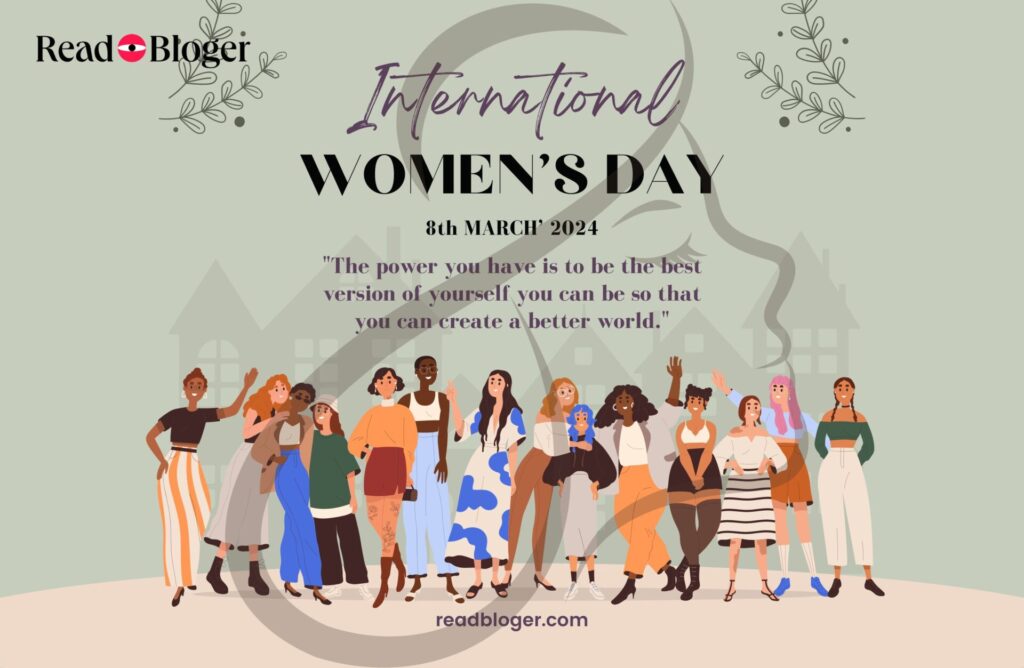What is International Women’s Day?
International women’s Day (8 March) is a day for us to sign up with voices with individuals worldwide and scream our message for equal rights loud and clear: “Female’s legal rights are human rights!”
We celebrate all women, in all their diversities. We welcome their elements and crossways of faith, race, ethnicity, sex or sex-related identification, or disability. We celebrate those who came before us, those who stand next to us now, and those that will certainly come after.
It’s a time to commemorate the achievements of women, whether social, political, financial or social.
The background of International women’s Day:
In 1908, against a background of dreadful working problems and exploitation, 15,000 women were required to the streets in New York city objecting for shorter hours, better pay and voting rights.
The next year the Socialist Event of America introduced a National Women’s Day to honour the strikers, and in 1910 it went international– the Socialist International voted for the development of a Women’s Day to promote suffrage. The first International women’s Day was held in 1911, and more than a million people went to rallies in Europe.
For a lot of the 20th century International Women’s Day was acknowledged and celebrated by individuals at the grassroots degree, a rallying factor for social justice. It had not been until 1975– International Female’s Year– that the United Nations adopted International women’s Day on 8 March, when it is still held.
Why is it an International Women’s Day issue?
IWD is a day to identify how far we’ve come towards sex equality, and likewise just how much we have actually left to go. Back in 1911, only 8 countries permitted ladies to elect, equivalent spending for equal work was unprecedented– if females were permitted to work at all– and reproductive legal rights were non-existent.
We have come a long way. Whereas when ladies couldn’t elect, we’re now leading nations. While we once faced restrictions on where we worked, we’re currently running firms. In countries such as Australia we have civil liberties our grannies might only have actually fantasised around, however we still don’t have total equal rights. And most of the world’s females aren’t anywhere near as near that goal as we are.
More than 100 years ago, that initial march had to do with finishing harmful workplace conditions, equal rights, equivalent pay, and an end to exploitation. And sadly, those aims are still appropriate today.
Because the civil liberties we have are not safe:
Development needs to be linear, however it’s frequently accompanied by a step back. In some cases, even as soon as regulations and civil liberties are developed, they are neglected anyhow. For instance:
In spite of residential physical violence regulations, public understanding and access to lawful protections, Australian males are still eliminating women partners or ex-spouses at the rate of one a week.
Reproductive civil liberties are a political football. Right here in Australia access differs by state, and in some parts of the United States regulations have actually passed making discontinuations inaccessible, no matter the factor behind the female’s choice.
Climate adjustment is increasing physical violence against females and girls, according to a major record in 2020. Study included domestic abuse, human trafficking, sexual offence, and violence versus females ecological civil liberties protectors.
IWD is a once-a-year possibility to remind governments, organizations and every person else viewing that females aren’t going anywhere, and we’re prepared to take action to attain our human rights.
Due to the fact that progress hasn’t been equivalent:
Some ladies feel they have actually not come across discrimination or harassment, or faced systemic obstacles to their success, however that’s not the experience of all females. IWD is an opportunity to recognize the worsened challenges encountered by ladies of colour, ladies with impairments, and queer or trans women, and stand in partnership with them.
It’s also a program of uniformity with our siblings residing in countries that may not have the ability to march out of concern for their security.



